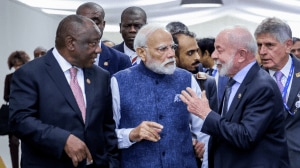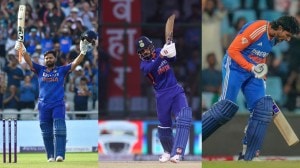Interview better way of judging judicial officers ability: SC
In a judgment which voices the changing expectations from the judiciary where a judicial officer is not just an expert in law but should also have the qualities of a good communicator....
In a judgment which voices the changing expectations from the judiciary where a judicial officer is not just an expert in law but should also have the qualities of a good communicator,the Supreme Court observed that an interview,rather than a written test,is better suited to detect the qualities of a capable judicial officer at the time of selection.
The apex court reasoned that while written tests only provided information about a judicial aspirants academic depth,the face-to-face communication during an interview affords the interviewer an insight into the personal qualities of the candidate. While the written test will testify to the candidates academic knowledge,the oral test can bring out or disclose overall intellectual and personal qualities like alertness,resourcefulness,dependability,capacity for discussion,ability to take decisions,qualities of leadership,etc,essential for a Judicial Officer, the Bench wrote in the judgment delivered on February 1.
The interview can evaluate a candidates initiative,alertness,resourcefulness,dependableness,co-operativeness,capacity for clear and logical presentation,effectiveness in discussion,effectiveness in meeting and dealing with others,adaptability,judgement,ability to make a decision,ability to lead,intellectual and moral integrity with some degree of error, observed Justice B S Chauhan,who wrote the verdict.
The judgment said the judiciary cannot compromise on the prescribed minimum standards required from a judge and the selection process should be comprehensive. Interview may also be the best mode of assessing the suitability of a candidate for a particular position as it brings out the overall intellectual qualities of the candidates, the Bench said.
The court was deciding on an appeal filed by one Ramesh Kumar challenging his failure to qualify in the District Judge cadre selections conducted by the Delhi High Court in 2007.
Kumar,who appeared in the Scheduled Caste category,found that his candidature was rejected as he had not cleared his interview though he had secured the required marks for judicial appointment in his written tests.
Kumar had subsequently moved the Supreme Court,challenging the High Courts authority to fix the minimum Bench marks for the interview when the Delhi Higher Judicial Service Rules,1970 do not specify anything.
The Supreme Court laid down that the Delhi High Court as the competent authority in charge of the selection process,was very much within its rights to fix the norms for selection. The Bench also cleared Kumars appointment taking into consideration the fact that he had secured the minimum marks required,and the post to which he had applied for was still vacant.








- 01
- 02
- 03
- 04
- 05























